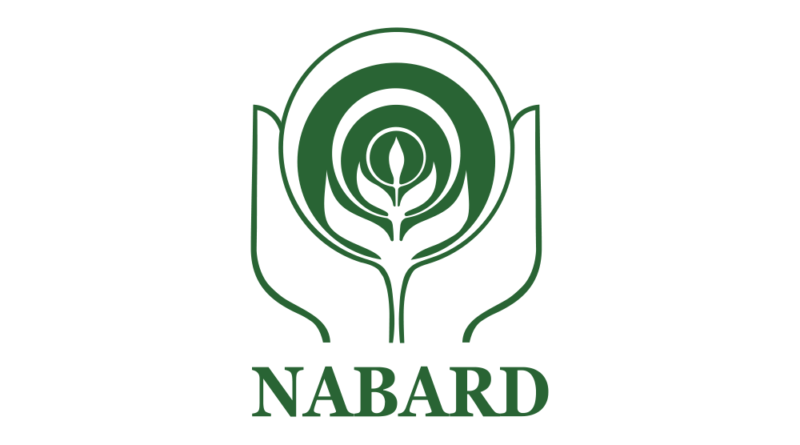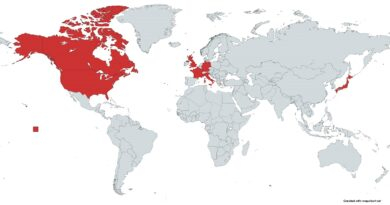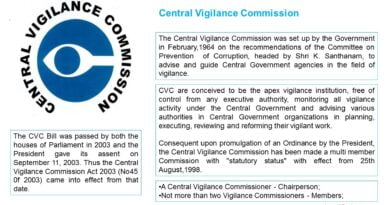National Bank for Agriculture and Rural Development (NABARD)
Ministry of Finance
Context:
The Micro Irrigation Fund (MIF), with a corpus of Rs. 5,000 crores has been created under NABARD
GENESIS & VISION of NABARD:
- The Reserve Bank of India (RBI) at the insistence of the Government of India, constituted a Committee to Review the Arrangements For Institutional Credit for Agriculture and Rural Development (CRAFICARD) to look into these very critical aspects.
- The Committee was formed on 30 March 1979, under the Chairmanship of Shri B. Sivaraman, former member of Planning Commission, Government of India.
- The Committee’s interim report, submitted on 28 November 1979, outlined the need for a new organisational device for providing undivided attention, forceful direction and pointed focus to credit related issues linked with rural development.
- Its recommendation was formation of a unique development financial institution which would address these aspirations and formation of National Bank for Agriculture and Rural Development (NABARD) was approved by the Parliament through Act 61 of 1981.
- NABARD came into existence on 12 July 1982 by transferring the agricultural credit functions of RBI and refinance functions of the then Agricultural Refinance and Development Corporation (ARDC).
- It was dedicated to the service of the nation by the late Prime Minister Smt. Indira Gandhi on 05 November 1982. Set up with an initial capital of Rs.100 crore, its’ paid up capital stood at Rs.14,080 crore as on 31 March 2020.
- Consequent to the revision in the composition of share capital between Government of India and RBI, NABARD today is fully owned by Government of India.
About NABARD :
NABARD is a development bank focussing primarily on the rural sector of the country. It is the apex banking institution to provide finance for Agriculture and rural development. Its headquarter is located in Mumbai, the country’s financial capital.
- It is responsible for the development of the small industries, cottage industries, and any other such village or rural projects.
- It is a statutory body established in 1982 under Parliamentary act-National Bank for Agriculture and Rural Development Act, 1981.
Functions
- NABARD’s initiatives are aimed at building an empowered and financially inclusive rural India through specific goal oriented departments which can be categorized broadly into three heads: Financial, Developmental and Supervision.
- It provides refinance support for building rural infrastructure.
- It prepares district level credit plans to guiding and motivating the banking industry in achieving these targets.
- It supervises Cooperative Banks and Regional Rural Banks (RRBs) and helping them develop sound banking practices and integrate them to the CBS (Core Banking Solution) platform.
- Core Banking Solution (CBS) is networking of branches, which enables Customers to operate their accounts, and avail banking services from any branch of the Bank on CBS network, regardless of where he maintains his account. The customer is no more the customer of a Branch. He becomes the Bank’s Customer.
- It is involved in designing Union government’s development schemes and their implementation.
- It provides training to handicraft artisans and helps them in developing a marketing platform for selling these articles.
- NABARD has various international partnerships including leading global organizations and World Bank-affiliated institutions that are breaking new ground in the fields of rural development as well as agriculture.
- These international partners play a key consultant’s role in providing advisory services as well as financial assistance designed to ensure uplifting of rural peoples as well as optimization of various agricultural processes
MISSION
Promote sustainable and equitable agriculture and rural development through participative financial and non-financial interventions, innovations, technology and institutional development for securing prosperity.
- The National Bank for Agriculture and Rural Development (Amendment) Bill, 2017 was introduced by the Minister of Finance, Mr. Arun Jaitley in Lok Sabha on April 5, 2017. The Bill seeks to amend the National Bank for Agriculture and Rural Development Act, 1981.
- The 1981 Act provides for the establishment of the National Bank for Agriculture and Rural Development (NABARD). NABARD is responsible for providing and regulating facilities like credit for agricultural and industrial development in the rural areas.
- Increase in capital of NABARD: Under the 1981 Act, NABARD may have a capital of Rs 100 crore. This capital can be further increased to Rs 5,000 crore by the central government in consultation with the Reserve Bank of India (RBI).
- The Bill allows the central government to increase this capital to Rs 30,000 crore. The capital may be increased to more than Rs 30,000 crore by the central government in consultation with the RBI, if necessary.
- Transfer of the RBI’s share to the central government: Under the 1981 Act, the central government and the RBI together must hold at least 51% of the share capital of NABARD. The Bill provides that the central government alone must hold at least 51% of the share capital of NABARD. The Bill transfers the share capital held by the RBI and valued at Rs 20 crore to the central government. The central government will give an equal amount to the RBI.
- Micro, small and medium enterprises (MSME): The Bill replaces the terms ‘small-scale industry’ and ‘industry in the tiny and decentralised sector’ with the terms ‘micro enterprise’, ‘small enterprise’ and ‘medium enterprise’ as defined in the MSME Development Act, 2006. Under the 1981 Act, NABARD was responsible for providing credit and other facilities to industries having an investment of upto Rs 20 lakh in machinery and plant. The Bill extends this to apply to enterprises with investment upto Rs 10 crore in the manufacturing sector and Rs five crore in the services sector.
- Under the 1981 Act, experts from small-scale industries are included in the Board of Directors and the Advisory Council of NABARD. Further, banks providing loans to small-scale, tiny and decentralised sector industries are eligible to receive financial assistance from NABARD. The Bill extends these provisions to the micro, small, and medium enterprises.
- Consistency with the Companies Act, 2013: The Bill substitutes references to provisions of the Companies Act, 1956 under the NABARD Act, 1981, with references to the Companies Act, 2013. These include provisions that deal with: (i) definition of a government company, and (ii) qualifications of auditors.
Governance
Board of Directors
- NABARD’s affairs are governed by a Board of Directors. The Board of Directors are appointed by the Government of India in consonance with NABARD Act. It is constituted of following:
- The Chairperson;
- 3 directors from amongst experts in
- rural economics,
- rural development,
- village and cottage industries,
- small-scale industries,
- or persons having experience in the working of co-operative banks, regional rural banks or commercial banks,
- or any other matter the special knowledge or professional experience which is considered by the Central Government as useful to the National Bank;
- 3 directors from out of the directors of the Reserve Bank;
- 3 directors from amongst the officials of the Central Government;
- 4 directors from amongst the officials of the State Government;
- such number of directors elected in the prescribed manner, by shareholders other than the Reserve Bank, the Central Government and other institutions owned or controlled by the Central Government;
- The Managing Director;
- The Chairperson and other directors (except elected ones by share-holders and officials of the Central Government) shall be appointed by the Central Government in consultation with the RBI.
Executive Committees
- The Board of Directors may constitute an Executive Committee consisting of such number of directors (called Executive Director) as may be prescribed.
- The Executive Committee shall discharge such functions as may be prescribed or may be delegated to it by the Board.
NABARD and RBI
- Reserve Bank of India is the central bank of the country with sole right to regulate the banking industry and supervise the various institutions/banks that also include NABARD defined under Banking Regulation Act of 1949.
- Many developmental and regulatory works are done by RBI and NABARD in co-operation.
- RBI provides 3 directors to NABARD’s Board of Directors.
- NABARD provides recommendations to Reserve Bank of India on issue of licenses to Cooperative Banks, opening of new branches by State Cooperative Banks and Regional Rural Banks (RRBs).
ACHIEVEMENTS
Financial, Developmental and Supervision are three broad heads which enable NABARD to touch almost every aspect of rural economy: providing refinance support, building rural infrastructure, preparing district level credit plans, guiding and motivating the banking industry in achieving credit targets, supervising Cooperative Banks and Regional Rural Banks (RRBs), helping them develop sound banking practices, enabling them to on-board to the CBS platform, designing new projects for rural development, implementing GoI’s development schemes, training handicraft artisans and providing them a marketing platform for selling their articles among others.
A) FINANCIAL FUNCTIONS
• Refinance – Short Term Loans
Crop loans are extended to farmers for crop production by financial institutions, which support in ensuring food security in the country
• Long Term Loans
NABARD’s long-term refinance provides credit to financial institutions for a wide gamut of activities encompassing farm and non-farm activities with tenors of 18 months to more than 5 years.
• Rural Infrastructure Development Fund
RIDF was set up with NABARD in 1995-96 by the Reserve Bank of India out of the shortfall in lending to priority sector by scheduled commercial banks for supporting rural infrastructure projects.
• Long-Term Irrigation Fund
The Long-Term Irrigation Fund (LTIF) was announced in the Union Budget 2016–17 for fast tracking the 99 identified medium and major irrigation projects, spread across 18 states in mission mode by December 2019. Subsequently, GoI has approved the funding arrangement under LTIF up to 31 March 2021 or till the continuation of the scheme is approved, whichever is earlier. Ministry of Water Resources, River Development and Ganga Rejuvenation (MoWR, RD & GR) is the nodal ministry designated to coordinate and facilitate completion of the projects. Subsequently, Government of India has approved funding for four more projects under LTIF viz; Polavaram project in Andhra Pradesh, North Koel project in Bihar and Jharkhand, Relining of Sirhind and Rajasthan Feeder Canal project of Punjab, and Shahpur Kandi Dam in Punjab.
• Pradhan Mantri Awaas Yojana – Grameen (PMAY-G)
The financial assistance was channelized towards PMAY-G, which plans to provide a pucca house, with basic amenities, to all houseless households including those living in kutcha and dilapidated houses, by 2022.
• Swachh Bharat Mission-Gramin (SBM-G)
The financial assistance was channelized towards SBM-G, aiming at achieving universal sanitation coverage in rural areas by 2nd October 2019
• Micro Irrigation Fund (MIF)
The objective of the fund is to facilitate State Govts. in mobilizing additional resources for expanding coverage under micro irrigation and incentivizing its adoption beyond provisions of PMKSY-PDMC. Ministry of Agriculture and Farmers Welfare (MoA&FW), Government of India is the Nodal Ministry. NABARD sanctioned an amount of ₹2842 crore to four States (Andhra Pradesh, Gujarat, Tamil Nadu & Haryana) during 2019-20 under the fund.
• NABARD Infrastructure Development Assistance(NIDA)
NABARD Infrastructure Development Assistance (NIDA) offers flexible long-term loans to well-managed public sector entities for financing rural infrastructure. Projects for agriculture infrastructure, rural connectivity, renewable energy, power transmission, drinking water and sanitation, and other social and commercial infrastructure are financed under NIDA. Inclusion of public–private partnership (PPP) and non-PPP projects to be undertaken by registered entities like corporates/companies, cooperatives, etc. has further broadened NIDA’s scope of funding. Financing under NIDA offers scope for off-budget and on-budget borrowing to state governments and aids in easing state budget constraints.
• Direct Refinance Assistance to DCCBs for Short-Term Multipurpose Credit (DRA)
While NABARD has been providing refinance to StCBs for various lending purposes, on behalf of District Central Cooperative Banks (DCCBs), direct assistance to DCCBs was designed as an additional line of credit for diversification of lending and enhancing their earnings through profitable portfolios and facilitate effective liquidity management. The credit limit is sanctioned to well-governed and financially strong ‘A’ or ‘B’ rated StCBs or DCCBs, as per the latest inspection report of NABARD, against the unencumbered fixed deposit receipts (FDRs) pledged by the banks or term money borrowing (TMB) or a combination of both FDRs and TMB. The purpose of the loan covers inter alia working capital, repair and maintenance of farm equipment and other productive assets, storage/grading/packaging of produce, marketing activities, non-farm activities, etc. The limit is in the nature of cash-credit operative for one year from the date of sanction. The limit is also available for a period of three months to meet the specific requirements of banks.
• Credit Facility to Federations (CFF)
Credit facility to Federations (CFF) provides short-term credit support to state or central government entities like agricultural marketing federations or corporations, dairy cooperatives or federations, agricultural marketing cooperatives or federations, and registered companies for marketing of agricultural commodities, input supply, and value & supply chain management. Under this facility, credit support is made available for procurement of food grains, pulses and oilseeds and other agricultural commodities by marketing federations and civil supply corporations, marketing of fertilizers by federations, and procurement and processing of milk by milk unions/federations. This facility is extended as short-term loan for a period of twelve months OR three months to meet the specific requirements of the agencies.
• Dairy Processing and Infrastructure Development Fund (DIDF)
The objectives of the scheme are modernisation and infrastructure augmentation for milk processing and value addition and to ensure optimum price realisation by the primary producers. Under DIDF, the National Dairy Development Board (NDDB) / National Cooperative Development Corporation (NCDC) can borrow money from NABARD for on-lending to eligible end borrowers such as cooperative milk unions, state cooperative dairy federations, multi-state milk cooperatives, milk producer companies and NDDB subsidiaries.
• Fisheries and Aquaculture Infrastructure Development Fund (FIDF)
In line with its announcement in the Union Budget 2018-19, Government of India created the Fisheries and Aquaculture Infrastructure Development Fund (FIDF). FIDF guidelines were issued by Department of Animal Husbandry, Dairy, and Fisheries (DADF), Government of India in February 2019. NABARD is acting as a Nodal Loaning Entity (NLE) and will fund the public infrastructure components to the tune through State governments for various investment activities like 18 fishing harbours, 10 fish landing centres, 15 modernized State fish seed farms, 716 fish markets, 72 disease diagnostic laboratories and 5 aquatic quarantine facilities.
• Warehouse Infrastructure Fund
GoI created Warehouse Infrastructure Fund (WIF) for providing loans to meet the requirements for scientific warehousing infrastructure for agricultural commodities in the country.
• Food Processing Fund
With view to promoting food processing industries in the organised sector on a cluster basis, the Government of India instituted the Food Processing Fund (FPF) in NABARD in 2014–15, for setting up of 2 Mega Food Parks, 4 Agro Processing Clusters and 3 individual food processing units during 2019-20 12 Mega Food Park (MFP) projects, 4 Agro Processing Clusters and 6 Food Processing Units as on 31 March 2020.
B) Developmental Functions
- • Kisan Credit Card Scheme for Farmers: The Kisan Credit Card (KCC) scheme was designed by NABARD in association with the RBI in August 1998 for providing crop loans.
- RuPayKisan Cards (RKCs): NABARD has been at the forefront of technology revolution by helping rural financial institutions in providing RuPayKisan Cards (RKCs) to all their farmer clients.
- Tribal Development: the Tribal Development Programme
- Climate Resilient Agriculture
- Umbrella Programme on Natural Resource Management (UPNRM):
- The UPNRM started in 2007, works at enhancing investments in rural areas, creating business opportunities and enabling rural communities to sustainably utilise their natural resources.
- Microfinance Sector:
- NABARD had launched the Self Help Group-Bank Linkage Programme (SHG-BLP) in 1992. Over 23 lakh SHGs were credit-linked during 2017-18 financial year.
- EShakti: In a bid to digitise SHGs, project EShakti was launched on 15 March 2015.
- Skill Development: Promoting an entrepreneurial culture among the rural youth and encouraging them to start enterprises in the rural off-farm sector has been NABARD’s strategy for over three decades.
- Marketing Initiatives: For providing marketing opportunities to rural artisans and producers, NABARD has traditionally facilitated their participation in exhibitions across the country.
Incubation Centres
- To commercialise innovations and to shape agricultural entrepreneurship in the country, NABARD extended support to Chaudhary Charan Singh Haryana Agricultural University, Hisar and Tamil Nadu Agricultural University, Madurai for establishing Agri Incubation Centres with a total financial commitment of Rs 23.99 crore.
Discover more from Simplified UPSC
Subscribe to get the latest posts sent to your email.



